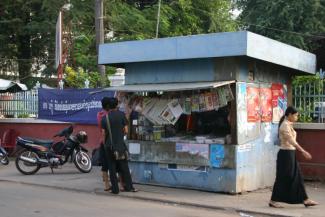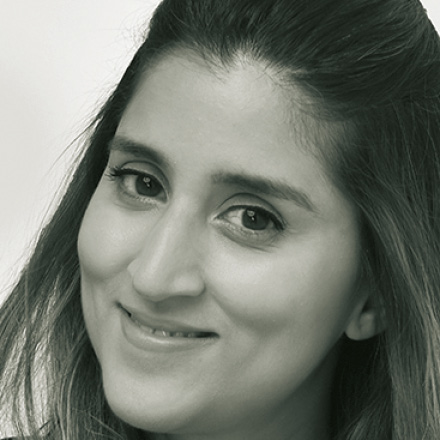Fake news
Think twice before sharing

Critical thinking, according to Julian King, the EU commissioner for the security union, is the best line of defence against the rising tide of fake news. At the same time, he argues that media literacy is the most effective weapon in the fight against disinformation campaigns that target the EU and its member states. The Russian government is known to support such campaigns.
Politicians, media outlets, non-governmental organisations and fact checkers are important, of course, but the most important job falls to us, the citizens. To be part of the solution, we all must stop and think twice before sharing content. The essence of social media, unfortunately, is to share huge numbers of information snippets for rapid consumption. This business model facilitates the dissemination of disinformation, half-truths and lies.
The most popular Facebook post (with 960,000 engagements) in the three months before the US presidential elections in 2016 was entirely fabricated, according to Buzzfeed. The message was: “Pope Francis shocks world, endorses Donald Trump for president, releases statement.” In this critical time span, the top 20 fake-news posts on Facebook from unreliable websites or blogs racked up more than 8.7 million shares, reactions and comments during this critical phase, Buzzfeed has reported. In contrast, the top 20 posts from long-established news organisations triggered only 7.4 million engagements.
So far it is unknown whether such fake-news stories had a lasting impact on voters and, if so, how many people were swayed to what extent. Shortly after Trump’s surprising victory, Facebook founder Mark Zuckerberg dismissed accusations that his platform helped put Trump in office as a “crazy idea”. Public pressure to uncover the real extent of Russian interference via social media has been intensifying ever since, however, and he has qualified his initial response, promising his platform would redouble its efforts to tackle fake news.
Zuckerberg has pointed out a core conflict with no easy solution, however: in most cases it is relatively easy to distinguish completely true from utterly fabricated stories, but it is much harder to identify stories of mostly accurate facts where a few details have been tweaked or left out
Germany too has been affected by disinformation. One example was when the Huffington Post reported that a Woolworth store in Dortmund had taken all Christmas articles off the shelves in November 2016. Line three of the story suggested the apparent reason: “According to media reports, a store saleswoman said: ‘We are a Muslim business; we don’t want to sell Christmas articles’.”
This was untrue. The retailer’s real motive was that Christmas items were not selling well at this particular location, so they were shipped to other Woolworth stores with stronger demand. This information was contained at the end of a video that accompanied the news item, but the news item itself did not convey it. Moreover, the “media reports” Huffington Post claimed to quote could not be substantiated, according to a study done on behalf of Vice magazine. Yet, the Huffington Post story was shared over 600 times, so it was a PR success.
Outrage as a recipe for success
More than 2 billion people use Facebook, and a growing number of internet users have been turning to social-media sites rather than established news organisations for the bulk of their news. While the flood of information is steadily rising, our attention is limited. On average, a mobile Facebook user takes just 1.7 seconds to decide whether to engage with content that pops up on the screen. In the race to generate outrage, a lurid title makes the cut more often, driving up views and shares and increasing the ripple effect of false reporting and disinformation.
The Vice study nominated “champions of disinformation” among the German-language news sites with the widest reach and full editorial staffs. Sputnik DE, Huffington Post DE and RT Deutsch took the top spots. An estimated 42 to 47 % of these websites’ Facebook postings were found to contain information that was misleading at best and completely false at worst.
Internationally, the spotlight is turning on pro-Kremlin platforms such as Sputnik and RT in particular. For example, British Prime Minister Theresa May and many others accuse Russia of interfering in elections and referenda. Moscow is being blamed for manipulating opinions around the world. Experts fear that disinformation may destabilise Germany’s democratic constitutional order as well.
Russia plays a special role in the battle for hearts and minds. An analysis by the London School of Economics and the Institute for Strategic Dialogue revealed that, apart from some international extremist right-wing networks, particularly pro-Kremlin media emphasised divisive issues. It remains unclear whether such action has had any significant impact on elections.
No doubt, false reports can have a tangible impact, not least, because they reinforce the notion that the “mainstream” media are biased or complicit in some political agenda. Agitators from the political fringes have been spurning established media houses for quite some time, and they are increasing their pressure.
Discrediting the truth and denigrating established media is generating uncertainty. That became evident in the Edelman Trust Barometer of January 2018 for example. This most recent edition of an annual research effort showed that seven out of ten people worldwide now say they fear fake news. The times when people ridiculed and disregarded the phenomenon of false information online is over.
Established journalism winning favour
The good news is that traditional journalism is regaining public trust, whereas confidence in search engines and social media is declining. In 21 out of 28 countries surveyed, respondents said they trusted established media houses more than Google, Facebook and the like. People seem to crave trustworthy facts and the professional take of pundits who know their business.
Fundamental values – including tolerance, freedom of opinion and freedom of expression – make democracy vulnerable to mass disinformation in cyberspace. It is a challenge to protect democracy from the massive amount of fake news. Politicians and parliaments certainly must lead the charge.
In Germany, the Network Enforcement Act took effect recently. Among other things, this law forces Facebook and other social media sites to remove hate speech, fake news and other “obviously illegal” content from their platforms fast. Such regulations put pressure on social media firms, but many critics have pointed out some serious shortcomings, including the following:
- It is hard to tell exactly what constitutes an “obvious” violation of the law. Not everything that is hurtful, fabricated or stupid is necessarily illegal.
- Outsourcing authority for determining the legality of content from the courts to private corporations seems like the de-facto privatisation of the judicial process.
- There is a risk of platforms pre-emptively deleting potentially controversial content, which a society that values freedom of opinion should be willing to tolerate.
Public debate on these issues must continue. Otherwise, there is no hope of achieving our democratic objectives while avoiding dangerous pitfalls. Important first steps have been taken. The EU Commission has set up the High-Level Expert Group on Fake News and Disinformation consisting of international representatives from NGOs, the media and researchers. Their recommendations are to be incorporated into a comprehensive EU strategy to combat fake news (see recent D+C/E+Z blogpost). As with other issues that do not respect national borders, Europe must pull together to tackle the harmful side-effects of digitisation.
The work of the established media must become yet more transparent. Many media houses have set up teams who fact check online stories in order to identify fake news and disinformation. Editorial offices need to keep up the fight. They must also disclose the journalistic criteria they employ so people understand what they do report, what they do not report, and for what reasons. This is the only way established mainstream media can successfully counter the accusation of holding back inconvenient truths.
Ultimately though, we users must assume responsibility. Just like we all learn how to navigate road traffic safely, diligent citizens of digitised societies must learn to navigate web traffic safely. We must avoid hazards while reaping the benefits. Whether you are crossing the road or travelling on the digital highway, a good rule of thumb is to stop, look and listen before you go.
Benjamin Gaul is the coordinator for social-media strategies at the Konrad-Adenauer-Stiftung, which is close to Germany’s Christian Democrats.
benjamin.gaul@kas.de
http://www.kas.de/en










